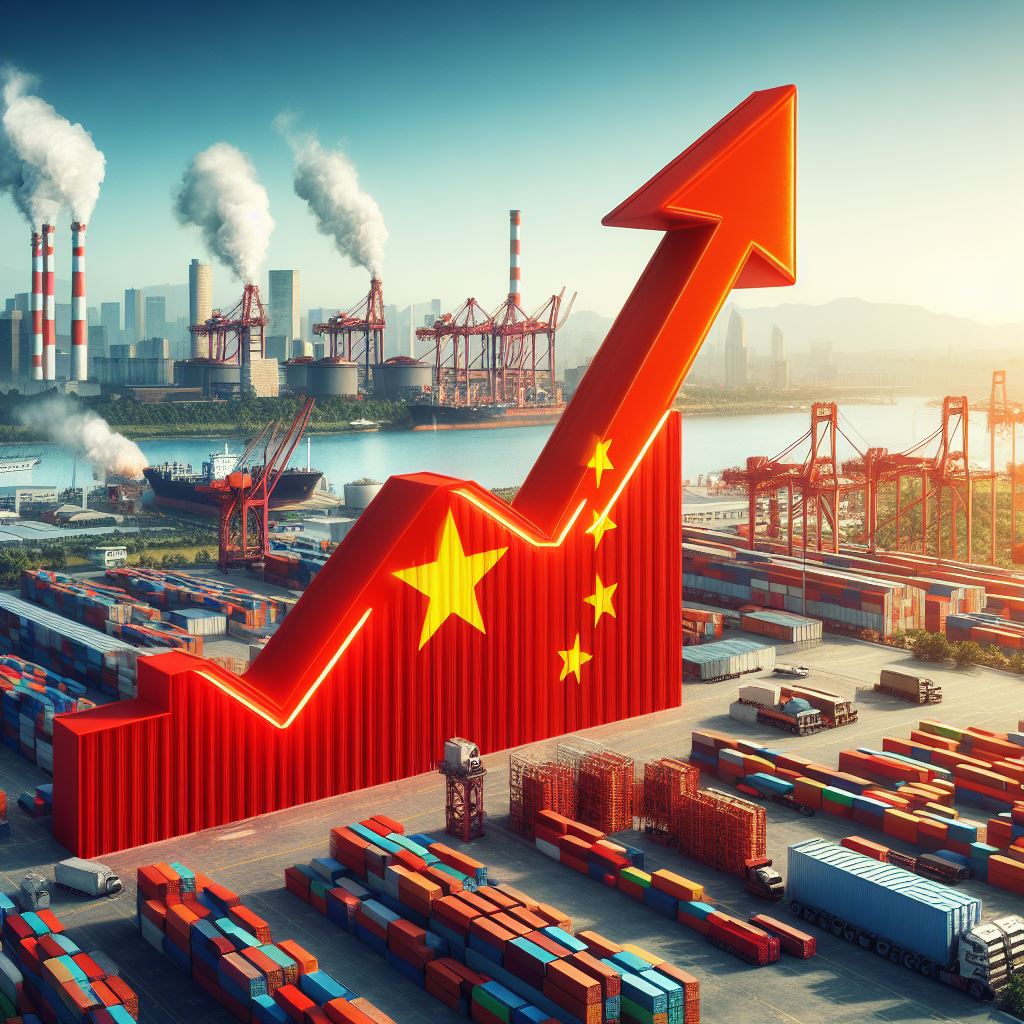International
Strong import growth shows Chinese economy stronger than appearance

Despite continued weakness in the economy, Chinese imports of major commodities remained strong in the first two months of 2024 and exceeded last year’s levels. This suggests that the economy is better than previously thought. This suggests that the 5 percent growth target proposed by Prime Minister Li Qiang is achievable.
Imports of crude oil, LNG, coal, and iron ore increased at the beginning of the year compared to the same period in 2023, despite the fact that China’s economic data still show a weak recovery, problems in several key sectors, and low consumer confidence.
There is a reason behind the strong imports of raw materials, and it is not China’s economic growth. Rather, it is the market dynamics of each of the major commodities, notes Reuters columnist Clyde Russell.
Strong commodity imports
Crude oil imports in China, the world’s top importer of crude, rose to 11.73 million barrels per day (bpd) in February from 11.31 million bpd in January, according to LSEG data cited by Russell.
The China Customs Bureau does not report separate data for January and February to avoid distortions due to the Lunar New Year holiday, which usually begins in late January or early February.
According to LSEG’s estimates, China imported an average of 11.51 million bpd of crude oil in January and February, an increase of more than 1 million bpd compared to official Chinese crude oil import data for January–February last year.
Despite possible distortions due to the Lunar New Year holiday period, which this year took place in February, much of the increase in crude oil imports was due to higher demand than in January 2023, when China was reopening the COVID blocks, and due to lower commodity prices at the time the orders were placed in the fourth quarter of 2023.
Oil prices fell in the last quarter of last year after hitting a 2023 high of more than $95 a barrel in September.
Considering the time lag of about two months between crude purchases and nominations and the arrival of crude in China, it can be concluded that Chinese refiners continued to buy more oil when prices were falling.
In January 2024, China’s crude oil imports remained at a brisk pace of 11.31 million bpd, according to LSEG Oil Research estimates. Low oil prices in November and December 2023 boosted China’s crude oil imports at the beginning of the year.
In January, China also allocated a massive batch of crude oil import quotas to refiners, increasing quotas from the beginning of last year by about 60 percent and allocating some quotas for the entire year. According to analysts, the early allocation of a large volume of import quotas will help refiners better plan for crude purchases in 2024.
Despite weakness in the manufacturing sector and the ongoing housing crisis, crude oil imports are estimated to have remained at much higher levels than in the first two months of 2023.
This is partly because China took advantage of the drop in oil prices, which began in October, to increase stocks of cheaper crude oil in December and January.
In the liquefied natural gas market, China imported a record volume of LNG in February for the month as buyers took advantage of falling spot prices in Asia amid ample inventories and tepid demand.
Chinese LNG imports last month—the highest ever in February—reached 5.5 million tons, up 15 percent from February last year, according to ship tracking data compiled by Bloomberg last week.
In February 2024, Chinese LNG importers have been looking for cheaper supplies of liquefied natural gas on the spot market as prices in North Asia halved from October levels and slipped to nearly three-year lows in mid-month.
Last week, the average LNG price for April delivery in Northeast Asia was unchanged from the previous week at $8.30 per million British thermal units (MMBtu), the lowest level since April 2021.
China’s coal imports were also robust in early 2024 due to high electricity demand and low hydropower generation.
Despite the crisis in the real estate sector, China’s iron ore imports were also strong in early 2024.
Steel mills have increased iron ore inventories in recent weeks, which may be in anticipation of authorities taking measures to stimulate the sector and the economy in general, notes Reuters’ Russell.






